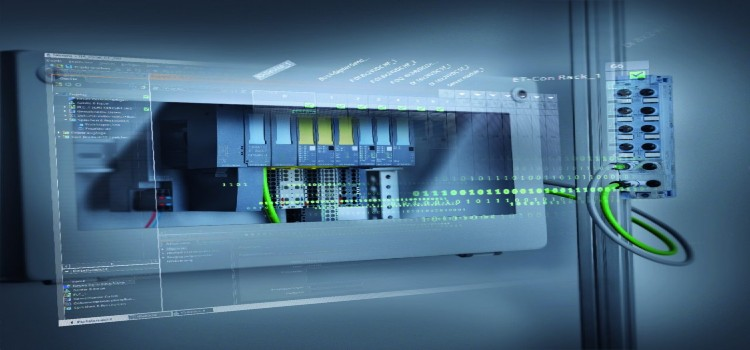
Singapore Smart Furniture Market by Product Type (Smart Tables & Desks, Smart Stools & Benches, Smart Chairs, and Smart Beds), by End Use (Residential and Commercial), and by Distribution Channel (Online and Offline) – Opportunity Analysis and Industry Forecast, 2024–2030
Industry: ICT & Media | Publish Date: 20-Feb-2024 | No of Pages: 101 | No. of Tables: 71 | No. of Figures: 36 | Format: PDF | Report Code : N/A
Market Overview
Singapore Smart Furniture Market size was valued at USD 17.0 million in 2023, and is expected to reach USD 32.2 million by 2030, with a CAGR of 9.5% from 2024 to 2030. Smart furniture refers to modern furnishings and fixtures designed with embedded technology, sensors, and connectivity features that enhance their functionality, convenience, and usability. These pieces of furniture are equipped with the ability to interact with users and adapt to various needs, often through remote control, via smartphone apps, or voice-activated virtual assistants. Smart furniture improves comfort, efficiency, and user experience in living, working, or recreational spaces by integrating elements such as adjustable settings, built-in charging capabilities, environmental sensors, and connectivity with other smart devices.
Rising Demand for Space Saving and Multi-Functional Furniture Propels the Market Growth
The growing need for furniture that saves space and serves multiple functions is a key factor driving the popularity of smart furniture. In today's busy urban areas, where living spaces are often limited in size, people are looking for smart solutions that make the most of their available space. This trend reflects the changing lifestyle of city dwellers who prefer compact and versatile furniture. Smart furniture is designed to meet this demand, offering features such as hidden storage, foldable designs, and the ability to adapt to different uses. This furniture is essential for making the most out of small living spaces.
Increasing Use of Energy Efficient and Sustainable Smart Furniture Drives the Market Growth
The surge in environmental consciousness has propelled the smart furniture market toward a dual commitment to energy efficiency and sustainability. Manufacturers are incorporating energy-efficient features including LED lighting systems and smart sensors that optimize power consumption based on occupancy, aligning with the global push for reduced energy use. Simultaneously, there is a significant emphasis on the materials used in production, with a growing preference for sustainable options such as recycled or responsibly sourced materials.
The Impact of Compatibility Issues on Smart Furniture Adoption Restrains the Market Growth
Integration challenges with existing smart home ecosystems may hinder the adoption of smart furniture. The inability to seamlessly connect with other smart devices and systems can limit the overall functionality and appeal of smart furniture for consumers.
Integration of Wireless Charging Capabilities in Smart Furniture Create Market Opportunities
Wireless charging in smart furniture involves the incorporation of induction coils and compatible charging technology within the structure of the furniture itself. The primary aim is to provide users with a seamless and cable-free charging experience for their electronic devices, such as smartphones, tablets, or other gadgets that support wireless charging.
Also, Furniture pieces including tables, desks, nightstands, and even seating arrangements can be designed with integrated wireless charging pads. These pads utilize electromagnetic fields to transfer power from the furniture to the battery of the device placed on the charging surface.
Competitive Landscape
Several market players operating in the Singapore smart furniture market include Inter IKEA Systems BV, Herman Miller, Inc., Steelcase, Inc., Sobro, StoreBound LLC, Seebo Interactive Ltd., Milano Smart Living, Modoola Limited, Hi-Interiors SRL, and Sleep Number Corporation.
Singapore Smart Furniture Key Market Segments
By Product Type
-
Smart Tables & Desks
-
Smart Stools & Benches
-
Smart Chairs
-
Smart Beds
By End Use
-
Residential
-
Commercial
By Distribution Channel
-
Online
-
Offline
REPORT SCOPE AND SEGMENTATION:
|
Parameters |
Details |
|
Market Size in 2023 |
USD 17.0 Million |
|
Revenue Forecast in 2030 |
USD 32.2 Million |
|
Growth Rate |
CAGR of 9.5% from 2024 to 2030 |
|
Analysis Period |
2023–2030 |
|
Base Year Considered |
2023 |
|
Forecast Period |
2024–2030 |
|
Market Size Estimation |
Million (USD) |
|
Growth Factors |
Rising Demand for Space Saving and Multi-Functional Furniture Propels the Market Growth Increasing Use of Energy Efficient and Sustainable Smart Furniture Drives the Market Growth |
|
Companies Profiled |
10 |
|
Market Share |
Available for 10 companies |
|
Customization Scope |
Free customization (equivalent up to 80 working hours of analysts) after purchase. Addition or alteration to country, regional, and segment scope. |
|
Pricing and Purchase Options |
Avail customized purchase options to meet your exact research needs. |
KEY PLAYERS
-
Inter IKEA Systems BV
-
Herman Miller, Inc.
-
Steelcase, Inc.
-
Sobro
-
StoreBound LLC
-
Seebo Interactive Ltd.
-
Milano Smart Living
-
Modoola Limited
-
Hi-Interiors SRL
-
Sleep Number Corporation




 Speak to Our Analyst
Speak to Our Analyst


































